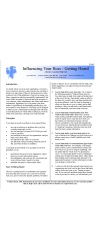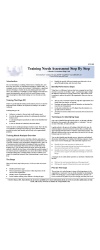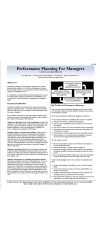Category: FAQ’s and KNOWLEDGE BASES

The FAQ section (Frequently Asked Questions) provides shorter answers to common questions on topics relevant to this site: communication, planning, conflict, leadership and more coming. Available FAQ’s are accessible here.
Is leadership about using the right “techniques”?
Technique, Yes, But There’s More Involved With Leading If leadership was ONLY about using the right techniques to plan, or inspire, or communicate, our world would probably be much better off, since it would be fairly easy to create great…
How do beliefs and values affect leadership behavior?
Implicit Beliefs, Articulated Beliefs and Beliefs In Action The effects of values and beliefs on leadership behavior is an interesting field. And it’s a bit more complicated then one would think at first glance. The link between links and values…
Is it possible to be an effective leader without being a great manager?
Leadership Success Without Management Expertise? The answer is yes. It is possible to be successful as a leader without being a great manager or possessing excellent management skills, because while the skills necessary for leadership and management overlap considerably, there…
Can you be a good manager, but not be a particularly good leader?
No Shame In Being One Without The Other The answer is a resounding YES. You can be a good manager, but not be a particularly good leader because while the two roles overlap and are often intertwined, they don’t have…
How is Leadership Different From Management?
What Is The Difference Between Leading and Managing? This is a very common question, so first the basic stock answer. Management is usually considered to be more related to: organizing, arranging, and keeping things running while leading is usually considered…
Is it possible to use “too little power” as a leader?
Use of Leadership Power Not Evil Formal leaders have formal power within organizations by virtue of their official positions. One of the responsibilities of formal leadership involves using that power to make the right things happen, and followers expect their…
Where does power fit in leadership?
Well, There’s Power, and Then There’s Power! To answer the question we have to distinguish between two kinds of power. First there is the kind of power that is associated with a formal position in an organization’s hierarchy, such as…
Is there a core set of leadership skills that are essential or mandatory for leadership success?
Do Leaders Have To Have A Specific Core Set Of Skills To Be Successful? It’s a Yes, and a No If you read books about leadership, or listen to leadership experts, you may come away with the idea that there…
How come a leader can be effective in one organization, move to another, and seem to fail miserably?
Leadership Mystery? In both corporations and other types of organizations, particularly those in the sports world, there is a clear phenomenon that can help us understand leadership. A person (CEO, manager, coach) can be tremendously successful in one organization or…
Getting Information From Others – A Leadership Skill
Communication – Key To Leadership Success When most people think about communication linked to effective leadership, they usually think about “sending information” or communication TO others. That’s certainly important, but it’s easy to forget that getting information FROM others is…
Leading The Shy, Quiet and Reticent Team Members
How To Encourage Shy Group Or Team Members To Participate (Leading A Team) Question: As a meeting and group leader how can I encourage one extremely shy and sensitive team member to share her excellent ideas during our group meetings?…





